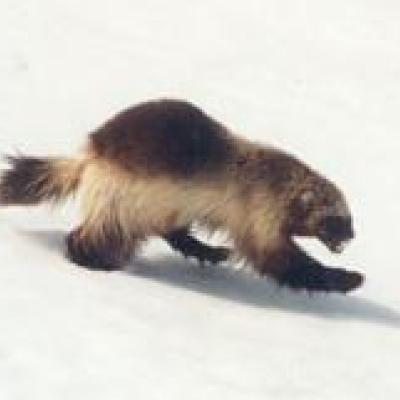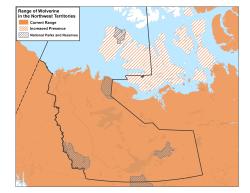The Wolverine resembles a small, stocky bear. Colour varies from brown to black, often with a pale facial mask and yellowish or tan stripes running along its sides from the shoulders and crossing at the tail.
Weight: Females, 7.5 to 11 kg (16 to 24 lb); Males, 12 to 16 kg (26 to 35 lb)
Report Wolverine sightings to WildlifeObs@gov.nt.ca

